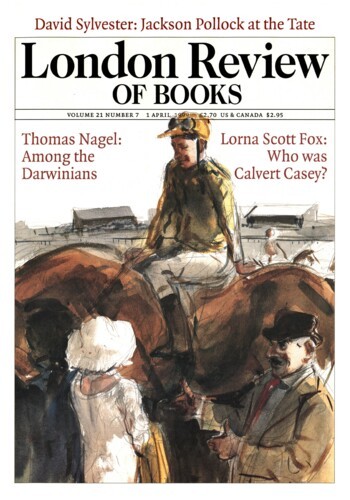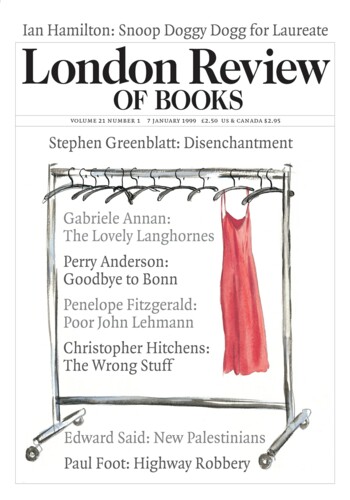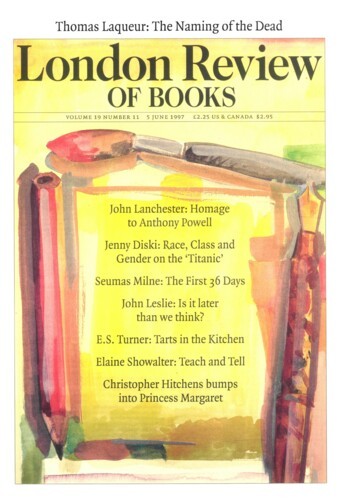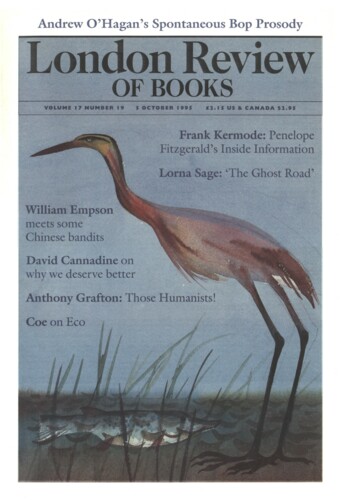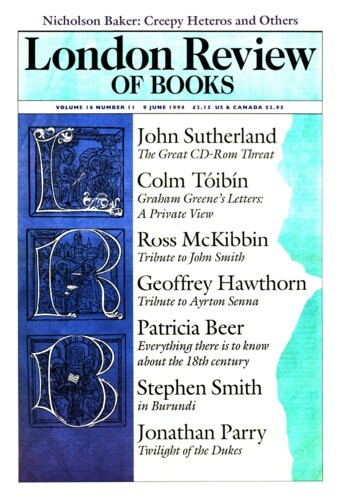A Little Pickle for the Husband
Michael Mason, 1 April 1999
Who needs a facsimile edition of Mrs Beeton, when you can buy a perfectly good modern edition? This sounds like a fair point, but it depends on a misconception: that the recipes in the modern books bearing the name ‘Mrs Beeton’ have some connection with the recipes in the book of 1861 entitled Beeton’s Book of Household Management. In fact there is no connection: something which was deplored even at the time of the centenary of publication 38 years ago, when Elizabeth David pointed out that the currently available Mrs Beeton didn’t contain a single recipe from the original. That this is an odd state of affairs does not of itself make a facsimile of the 1861 book an interesting object. People buy and use the modern Mrs Beeton with some feeling that the book enshrines venerable English cookery, but you don’t have to read Stalky and Co. in order to enjoy Mr Kipling’s exceedingly good cakes.‘
